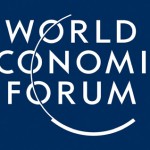 This summer is one of winners and losers.
This summer is one of winners and losers.
Yet after the Olympic fanfare in London, another race continues. After the headline-grabbing medalists return home and plot a return to glory, a larger story of competition continues to unfold out of sight as policymakers and executives around the world dive grapple with the issue of national economic competitiveness during the worst economic crisis in a lifetime.
How nations handle this adversity matters more than ever. The latest judgment on the competitive position of the United States comes from the World Economic Forum.
The group’s 2012-2013 annual report ranked the U.S. 7th, slipping further from the podium. Last year, the WEF ranked the U.S. 5th out of 144 countries; the U.S. was 4th in the 2010-2011 report.
Out of the 144 countries ranked, the US fared poorly in the business costs of terrorism (ranking 124th), government budget balance as a percentage of GDP (140th) and general government debt as a percentage of GDP (136th).
The study also looked at “the most problematic factors for doing business” by surveying executives. The most commonly mentioned factor: inefficient government bureaucracy. The next two were tax rates and tax regulations.
As the WEF report, and others show, the race globally for competitiveness continues. Getting the U.S. back onto the podium remains more important than ever.
You can read the report below:
The Global Competitiveness Report 2012-2013


